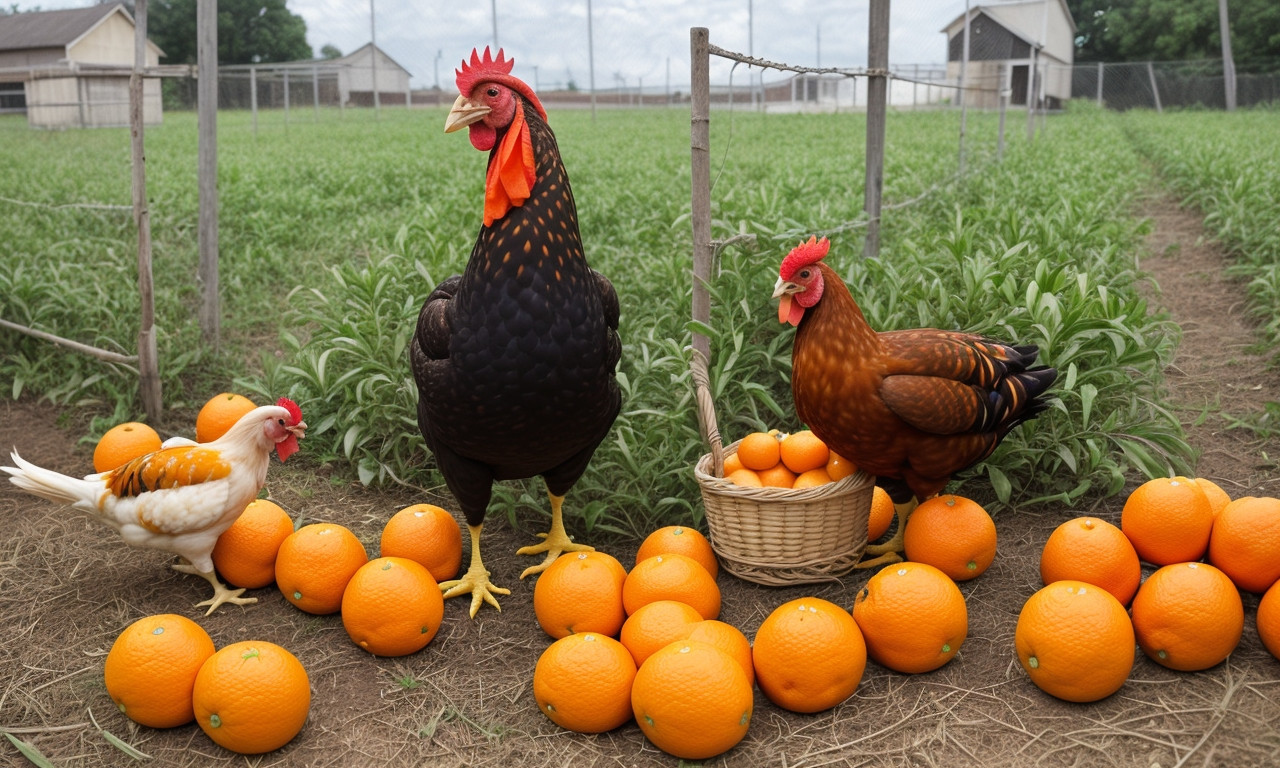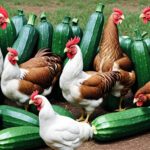When it comes to the diets of backyard chickens, the question of whether citrus fruits like oranges can play a part often ruffles a few feathers among poultry enthusiasts. It’s a juicy topic, filled with potential benefits and hazards that today’s health-conscious chicken keeper must navigate. Oranges, with their sharp tang and vibrant color, might appear to be a refreshing treat for your flock, but is the reality as sweet as it seems? Let’s peel back the layers to reveal if oranges belong in the henhouse or if they’re a case of fowl play.
Chickens, much like humans, enjoy a diverse range of foods with different textures and tastes that contribute to their overall well-being. As pet owners and farmers alike strive to provide the best diets for their feathered friends, understanding what is nutritious versus what could be harmful is crucial. This comprehensive guide invites you to roost a while as we explore the compatibility of chickens and oranges.
Nutritional Profile of Oranges
Before we dive into the particulars of chickens consuming oranges, let’s refresh our understdutch oven mac and cheeseing of the nutritional essence of this citrus fruit.
Vitamins and Antioxidants
Oranges, bursting with vitamins and antioxidants, are undeniably a powerhouse when it comes to promoting health. Here’s a snapshot of what these round beauties bring to the table:
- Vitamin C: This essential antioxidant is a well-known immune system booster for both humans and animals.
- Vitamin A: Important for vision, immune function, and reproduction.
- Folate: A form of Vitamin B that’s crucial for healthy growth and development.
Minerals and Fibers
Oranges are not just about vitamins; they’re also a source of vital minerals and dietary fiber:
- Potassium: Essential for heart function and plays a key role in skeletal and smooth muscle contraction.
- Fiber: Aids in digestive health, promoting healthy bowel movements and reducing the chance of constipation.
However, one must ponder, do these human health benefits translate favorably into a chicken’s diet? It’s essential to tailor nutrition to the specific needs of chickens, and sometimes, the human superfoods do not hold the same status in the poultry world.
Can Chickens Eat Oranges?
The straightforward answer is, yes, buffalo chicken dip recipes can technically eat oranges, but the real question is should they? Let’s scrutinize the potential effects of oranges on chickens, both the perks and the drawbacks.
Potential Benefits
Offering oranges to chicken apple sausage recipess may potentially yield some health benefits:
- Antioxidants: Just like in humans, antioxidants can support the immune health of chickens.
- Hydration: Oranges have a high water content, helping to keep chickens hydrated especially on hot days.
Considerations and Risks
However, feeding oranges best time to plant strawberries chickens isn’t without its concerns:
- Citrus Oils and Acids: While not toxic, the strong smells and flavors of citrus can be off-putting to chickens, discouraging them from eating.
- pH Balance: The acidity of oranges can potentially disrupt the digestive balance of chickens, leading to issues such as sour crop.
Feeding Chickens Oranges: The Safe Approach
If you decide that your flock might benefit from a slice of sunshine in the form of oranges, it should be done with caution and in moderation. Feeding chickens oranges can chickens eat okra be safe if you observe the following guidelines:
How Much and How Often
- Treats, including fruits like oranges, should make up no more than 10% of a chicken’s diet.
- Offer small amounts on an infrequent basis, such as a few segments once a week.
Prep and Serving Suggestions
- Remove the peel and seeds before serving as these can contain compounds that might not agree with chickens.
- Chop the fruit into small, manageable pieces to prevent choking and ensure it is easier for them to eat.
Alternatives to Oranges in a Chicken’s Diet
Chickens relish variety in their feed, and fortunately, there is a cornucopia of treats that are less contentious than citrus. Let us explore some poultry-approved delicacies:
- Apples (without seeds)
- Leafy greens like kale and spinach
- Cooked grains such as rice and oatmeal
- Berries, a delicious and less acidic fruit option
- Melons, for a juicy and hydrating treat
Understanding a Balanced Chicken Diet
The foundation of a chicken’s health lies in their daily feed—a balanced diet is vital. Below, we highlight what constitutes a nutritious diet for your feathered charges.
The Staples
- Commercial Feed: These are carefully formulated to meet all of a chicken’s nutritional requirements.
- Grit: Essential for helping chickens grind down food in their gizzard for better digestion.
Treats and Supplements
- Calcium Supplements: Needed for strong eggshell production and overall bone health.
- Protein-rich Treats: Mealworms and other insects provide necessary protein boosts.
Common Myths Around Chickens and Fruits
Dispelling myths is as vital as spreading knowledge when it comes to what chickens can eat. Let’s address some misconceptions:
Myth: Chickens Can Eat Anything
Reality: While chickens have a wide-ranging diet, there are specific foods they should avoid due to potential toxicity or digestive issues.
Myth: Citrus Fruits Are Poisonous to Chickens
Reality: Citrus fruits aren’t poisonous but are generally not recommended due to their high acidity.
Myth: All Fruits Are Great for Hydration
Reality: While fruits do contain water, not all are suitable for chickens, balancing hydration with nutritional and health needs is important.
Final Thoughts: To Feed or Not to Feed?
When it comes to feeding your flock oranges, it’s not a clear-cut case of zestful enthusiasm. The conversation will continue to twist and turn, much like a garden path winding through an orchard. Here’s a recap to help you make an informed decision:
- Understand the Risks: Be aware of the potential downsides, including citrus oils and digestive risks.
- Moderation is Key: If you opt to provide oranges, do so sparingly.
- Always Observe Your Flock: Monitor your chickens after introducing any new food to ensure it agrees with them.
In the end, every chicken keeper must decide whether the benefits outweigh the concerns when introducing oranges into their birds’ diets. This discussion, perhaps not as straightforward as black and white—or should we say, orange and white—is a part of the broader commitment to providing the best care for your feathered family.
And remember, while citrus oranges might carry a hint of controversy in the world of poultry treats, the overarching goal is clear as daylight: maintain a balanced and nutritious diet for your clucking companions, ensuring that their days are as golden as the eggs they lay.






